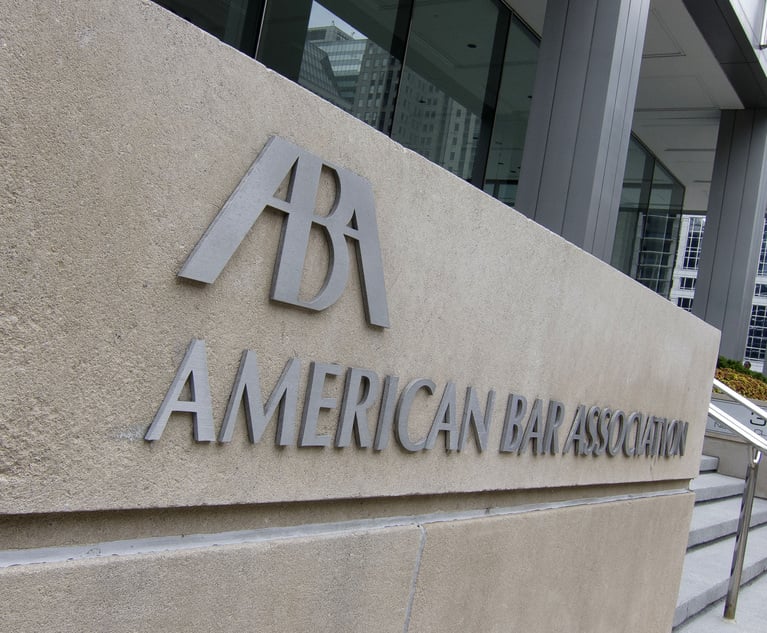

An American Bar Association committee has recommended axing the accreditation standard mandating that schools use a standardized test in admissions.
April 16, 2018 at 03:06 PM
1 minute read
Presented by BigVoodoo
Law firms & in-house legal departments with a presence in the middle east celebrate outstanding achievement within the profession.
The premier educational and networking event for employee benefits brokers and agents.
The Legal Intelligencer honors lawyers leaving a mark on the legal community in Pennsylvania and Delaware.
A large and well-established Tampa company is seeking a contracts administrator to support the company's in-house attorney and manage a wide...
We are seeking an attorney to join our commercial finance practice in either our Stamford, Hartford or New Haven offices. Candidates should ...
We are seeking an attorney to join our corporate and transactional practice. Candidates should have a minimum of 8 years of general corporat...
MELICK & PORTER, LLP PROMOTES CONNECTICUT PARTNERS HOLLY ROGERS, STEVEN BANKS, and ALEXANDER AHRENS

